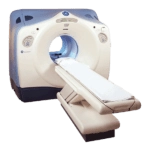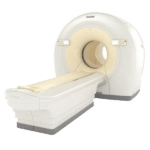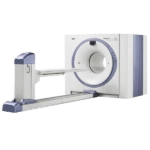PET imaging with radiotracers to accurately identify molecules in cancer cells that prevent the immune system from attacking a disease
According to a preclinical study published in the June issue of the Journal of Nuclear Medicine, PET imaging with radiotracers to accurately identify molecules in cancer cells that prevent the immune system from attacking a disease, called immuno-PET, could become an effective tool in assessing inflammatory bowel disease (IBD).
Immuno-PET has potential in detecting IBD in mice, according to the Australian researchers. Immuno-PET could provide the dual theranostic objective of diagnosing inflammatory diseases while also helping clinicians follow up precision treatment, if it’s successful in human trials.
“Our results provide further evidence of the clinical utility of immuno-PET for IBD diagnosis and monitoring,” wrote lead author Nicole Dmochowska, a doctoral student, and colleagues from the South Australian Health and Medical Research Institute in Adelaide. “Development of these techniques would be of particular benefit to patients who are difficult to scope, including the pediatric population and those that have inflamed or fibrotic regions of the small intestine.”
IBD is a disease category that includes Crohn’s disease and ulcerative colitis, making its diagnosis critical for many patients. It’s difficult to assess when symptoms will reappear, since IBD has a lack of definitive indications. This is a huge problem because patients with a long history of IBD run the risk of developing colon cancer.
IBD, at the moment, is only assessed through endoscopy and colonoscopy, but neither procedure can reach all areas of the small intestine. These procedures also have the issue that they cannot provide real-time information on the efficacy of treatment/drugs.
The authors wrote: “Therefore, new technologies are required for imaging IBD that are less invasive than endoscopy and can provide information on specific pathologic processes in real-time.”
Get Started
Request Pricing Today!
We’re here to help! Simply fill out the form to tell us a bit about your project. We’ll contact you to set up a conversation so we can discuss how we can best meet your needs. Thank you for considering us!
Great support & services
Save time and energy
Peace of mind
Risk reduction
IBD inflammation activates the body’s natural immune system, which contains immune cells that have the surface receptor CD11b. Those cells secrete IL-1β to generate immune responses.
“However, a direct comparison of antibodies targeted to innate immune mediators and cells has not been done. We aimed to compare immuno-PET of antibodies to IL-1β and CD11b against standard F-18 FDG and MRI approaches to detect colonic inflammation,” Dmochowska and colleagues added.
2 sets of mice were used for the study: those with ulcerative colitis, and a group of age- and weight-matched healthy mice. The mice were watched daily by the team for signs of acute colitis. They then compared the ability of immuno-PET with zirconium-89 (Zr-89) conjugated antibodies against IL-1β, CD11b, and F-18 FDG, along with MRI, to detect inflammation in colitic mice.
Immuno-PET images showed that in colitic mice, distal colonic uptake of Zr-89 IL-1β increased by approximately threefold; uptake of Zr-89 CD11b was five times greater, and uptake of F-18 FDG rose by around 3.5-fold. MRI achieved an approximately twofold increase in the T2 signal intensity ratio in colitic mice.
An ex vivo PET analysis showed the uptake of Zr-89 IL-1β and Zr-89 CD11b increased throughout the entire gastrointestinal tract of the colitic mice, compared with the control mice. Zr-89 IL-1β also was distributed mainly in the gastrointestinal tract, while Zr-89 CD11b spread to more tissue types. Zr-89 IL-1β also correlated with colitis severity, while Zr-89 CD11b showed no such association.
The researchers concluded: “Our comparison demonstrates the strong potential that immuno-PET of innate immune mediators has for diagnosing and monitoring IBD.”



